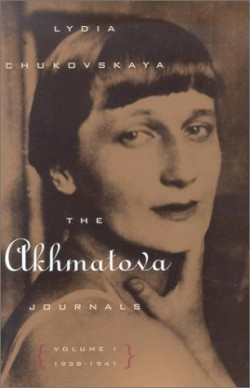The Akhmatova Journals
1938-1941, Volume One
The author grew up in the heart of Soviet Russian literary culture; her father was perhaps the most erudite and wide-ranging writer of his time. In 1938, when her husband was arrested, Chukovskaya sought out the great, persecuted poet Anna Akhmatova, and quickly anointed herself Akhmatova’s Boswell. Her Zapiski ob Anne Akhmatovoy (The Akhmatova Journals) chronicle the last three decades of the poet’s life—years of partial political rehabilitation during World War II, renewed suppression of her work and livelihood after the War, and her final years as an ambiguously tolerated grande dame of Russian literature.
Only the first volume of the Journals, covering the years 1938 through 1941, is available in English. Originally published by Farrar Straus & Giroux in 1994, and ably translated, this book has now been reissued in paperback.
Akhmatova was forty-nine years old when Chukovskaya initiated their acquaintance. The poet’s son was in prison; her husband had just been released. A celebrity herself in pre-Revolutionary Russia and now brutally eclipsed by official policy, she was struggling to keep alive and to rescue her family. The volume breaks off in November 1941 when Akhmatova, temporarily celebrated as the literary voice of indomitable Russian culture, had just been evacuated from the Siege of Leningrad to the distant safety of Tashkent.
In notes sometimes fragmentary and occasionally discursive, Chukovskaya recounts the trajectory of their friendship as it developed personally and professionally, and then annotates her notes with retrospective explanations, as when she clarifies a reference to Pushkin: “Pushkin had nothing to do with it, this is a code. In reality A. A. showed me her ‘Requiem’ that day, written down for a moment, to check whether I had memorized everything.” (Fearful of being caught with compromising material, Akhmatova burned her texts after having trusted friends like Chukovskaya commit them to memory.)
By no means is Chukovskaya’s perspective an objective view of Akhmatova. The more closely their lives intertwine, the more partial her account becomes, but it is no less valuable for its intense engagement. Like Boswell’s Life of Samuel Johnson, The Akhmatova Journals are more a gripping story of a developing relationship than they are the simple lines of a portrait.
Even general readers having no intrinsic interest in Russian literature will be moved by the mosaic begun with this volume.
Reviewed by
J. Kates
Disclosure: This article is not an endorsement, but a review. The publisher of this book provided free copies of the book to have their book reviewed by a professional reviewer. No fee was paid by the publisher for this review. Foreword Reviews only recommends books that we love. Foreword Magazine, Inc. is disclosing this in accordance with the Federal Trade Commission’s 16 CFR, Part 255.


